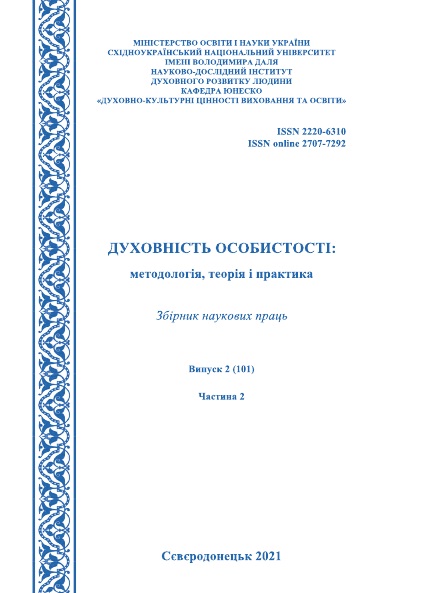EPISTOLARY OF OUTSTANDING UKRAINIAN WRITERS IN SCHOOL EDUCATION: METHODOLOGICAL ASPECT
DOI:
https://doi.org/10.33216/2220-6310-2021-101-2_2-141-150Keywords:
Letter, writers’ epistolary, school education, teaching methods, lessonAbstract
The article emphasizes the need to use writers’ epistolary during study of Ukrainian literature at school, in particular, provides guidelines for acquaintance with the works of Lesya Ukrainka in Grades 5-6 according to the updated programme of the new Ukrainian school. Lesya Ukrainka’s work has been thoroughly studied by representatives of various scientific directions, artistic trends, and literary schools. However, in addition to the published one, the writer’s epistolary contains important information for both understanding the essence of the artistic heritage of that period as a whole and highlighting the poet’s personal relationships with prominent contemporaries, and the course of historical facts and events. Taken together, this allows scientists and admirers of Lesya Ukrainka’s creative heritage not only to delve into understanding the sources of her development as a poet, prose writer, and playwright but also to determine the role of women in society at the turn of the century, to understand difficult family and personal relationships.
The writer’s epistolary helps to trace the evolution of the master’s work. In our research, we have repeatedly emphasized that epistolary reliably reflects the laboratory of the author’s style, experiments in search of a genre. It is a manifestation of the psychology of creativity, gender relations, worldview, value aspects, etc.
The author proves that systematic work during the lessons of Ukrainian literature at school with the use of letters, memoirs, and diary entries of the writer contributes to better learning. The conclusions emphasize that epistolary dialogues are an integral part of the artist’s spiritual heritage; they reflect public interests and ideals, circumstances of personal life, working and creative conditions, reveal the socio-political and cultural-artistic atmosphere of the epoch.

